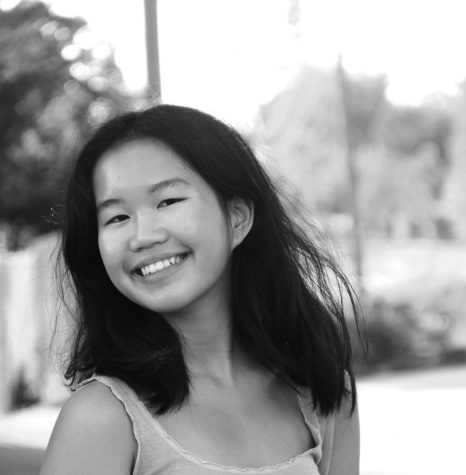Wolf editorial on sexual harassment inspires response
November 20, 2020
For our March 2020 issue, The Wolf staff planned an editorial on a pervasive topic: sexual harassment. Eight empowering female Wolf staff members shared their survivor stories, left anonymous. The issue never got printed due to school closures, but we published it online, nonetheless.
Seven months later, we received this letter. The woman told us she wrote this letter after reading our editorial.
She was sexually harassed by her male best friend. She not only details below the story, but reflects on the culture surrounding sexual harassment as well.
—————————————————————————————
There has been a fear that resonates in the core of my beliefs since the day my mother warned me about walking alone at night. She explained the evils that are hidden in society, that are sugar coated and brushed past because no one wants to acknowledge the facts: one in six women are sexually assaulted a year or have an attempt made; 90 percent of adult rape victims are female; girls the age of 16-19 are four times more likely to be victims of rape, attempted rape or sexual assault.
It has been ingrained that strangers are our perpetrators, people behind masks are ones committing these abominable crimes against us; however, as per usual, we overlook those in front of us. Our friends, our family, our supposed protectors, the people we love and trust. Oftentimes, the most threatening person is the one with the brightest smile and warmest hugs. That is my interpretation, at least.

Denial and mortification: my initial instinct after it happened. I couldn’t fathom the mere thought of him breaking my boundaries. It must’ve been my fault, there is no way he would do that if I didn’t give him a reason to, where did I go wrong? I was half asleep, the point where I was between consciousness; my vision blurred from the alcohol in my bloodstream. Everything was dark and swirling. When I was seconds away from drifting off, I felt his cold hand run up my leg. “Hey, are you awake?” “I really need to get off. It’s been too long.” “It doesn’t count if we’re close.” I froze. My mom taught me what to say, to scream, to kick, to get out. I was frozen, my body paralyzed, fear coursing through my veins. He won’t want to be friends anymore if I say ‘no.’ What would he even do if I refused? “Okay.”
The reality is, I couldn’t have given him my consent. Because of his actions, his lack of control, I have to live with the panic of being alone with men. The anxiety that rises when I see him running. The reality is, he isn’t a stranger behind a mask; he is the boy I’ve known since sixth grade, my first crush, my best friend. The reality is, I am now one of the 17.8 million victims of sexual abuse since 1998. Above all, the fact is: my sexual assault is not my fault.
I struggle with accepting and validating my trauma as I know others do as well. The notion of acceptance is difficult to practice when it addresses the wrongs done to us and reciprocally, induced by us. The redirection I want to see in the mirror begins by stating: sexual assault has no bias; it does not discriminate against gender, race, age, sexual identit, or clothing choice. Painfullly, sexual assault can occur to any individual, so it is crucial to keep the offender accountable and avoid accusing the survivor.
The undeniable truth of gender inequality has been institutionalized in most cultures, referring to the hardships one side has to face in order to get the same advantages as the other. As mankind continues evolving, this ideology unravels to reveal the negligent practices of traditional values, a belief that undermines a woman’s words against her male counterpart. Breaking the misogynistic cycle means acknowledging the pain woven in the fabric of the American flag and the historically portrayed generational sexism; with this in mind, reconstruction plays a vital role in protecting aspiring youth from the subjugation experienced today.
My intention here is not to shame but to embrace those who are too intimidated to speak up; I see you, I believe you, my heart breaks for you and I will be there for you when you are ready to take the steps towards acceptance. As women, we have so many odds stacked up against us that we need to support each other instead of tearing each other down.
Feminism is a topic that has radical stigmas around it; many claim feminists are too extreme, but in reality, we are fighting for the rights and respect that is a birthright to men. Inequality has been prevalent in all facets of our society for far too long. I am tired of fighting as a victim because, in my reality, I am a survivor.

